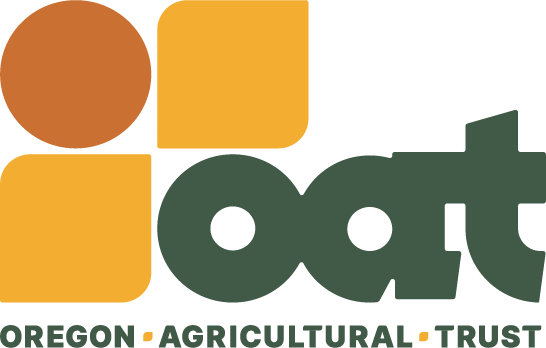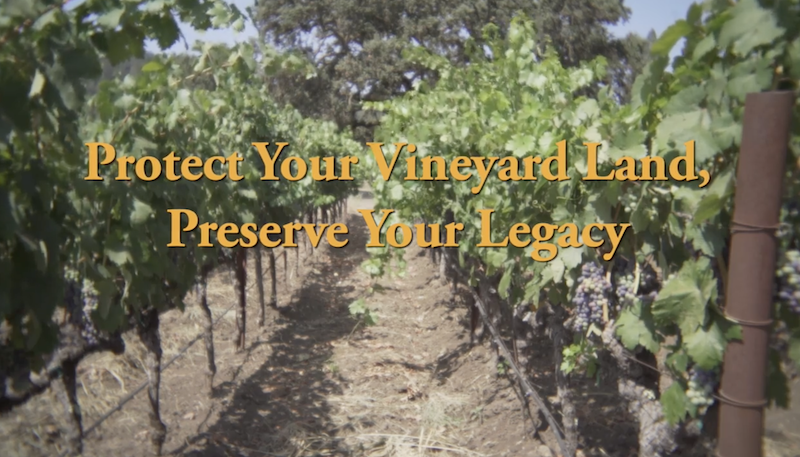Protect Your Vineyard Land, Preserve Your Legacy
An introduction to working land conservation easements for Oregon vineyard owners
Watch the full-length version of our video introduction to working land conservation easements for Oregon vineyard owners.
Short on time? Watch the 5-minute version instead.
Click here to watch the above videos with audio description
I think it’s just incumbent upon all of us who have the privilege of being caretakers of these lands that we do something about it, because if we don’t do it, who will?
-Tom Davies, President, Managing Partner, V. Sattui Winery
Oregon is known for its beautiful vistas, open spaces, and world-class wine. The state’s diverse microclimates, slopes, and soils produce excellent grapes from the Rogue Valley to the Willamette Valley to the Columbia Gorge.
It goes without saying that land is critical to winegrape production. Land not only provides the place to grow the grapevines, but just as importantly provides the nuances of flavors and aromas that characterize great wines.
In addition to hosting vineyards and the agricultural buildings and wineries that support them, this land also often contains critical habitat - in particular, oak savannas and prairies. Land is also often the primary economic asset for an agricultural business, creating both opportunities and challenges for dividing up a family estate.
Yet land and the agricultural businesses and habitats that depend upon it face strong challenges.
Intergenerational Transition: An unplanned succession can make it more difficult to pass the property to a local owner/operator, and the expense of succession can result in fragmentation, development, or removal of natural resources on the property.
Affordability: Owner/operators who participate in the local community and economy are often priced out by investment and amenity buyers. As a result, farmers without an inheritance find it impossible to enter the industry.
Conservation: Absentee owners or those with an urgent need to recoup their costs sometimes farm fencepost-to-fencepost, removing Oregon’s remaining oak habitats that were once safe in the formerly unfarmed slopes of our valleys.
To help address these economic and conservation issues, vineyard owners in Oregon and other states have used a tool called a working land conservation easement (“easement”). These are voluntary contracts where the landowner extinguishes development and a land trust or other organization enforces that decision in perpetuity. Easements have three primary benefits:
Conservation: The land stays available for agriculture and designated habitat forever.
Financial: The landowner receives a tax deduction and/or cash in exchange for the value of the property rights they gave up.
Affordability: Land is priced at its agricultural value, making it more affordable.
Click below to read an introductory guide that explains how and why a vineyard owner might convey a working land easement. It is offered by Oregon Agricultural Trust (OAT). OAT is a 501(c)(3) nonprofit land trust that works exclusively with landowners who wish to protect agricultural land along with its associated forest or habitat. We also offer succession and business counseling and education.





